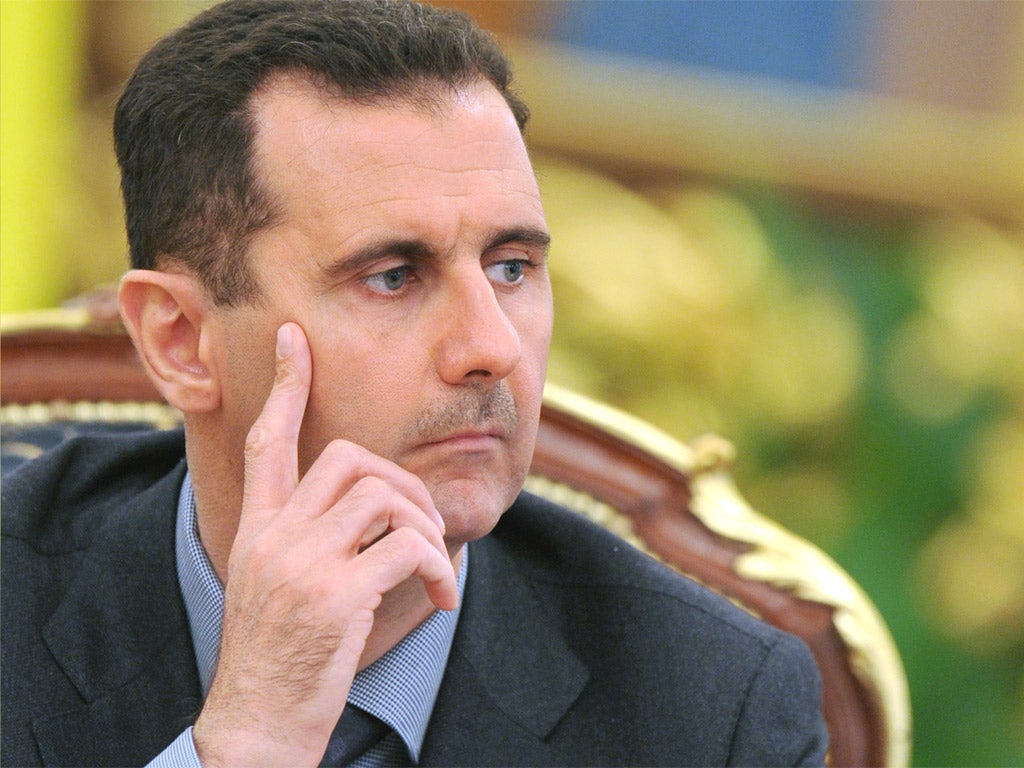Syria crisis: 'Massive evidence' implicates Bashar al-Assad in war crimes says UN
Navi Pillay, the United Nations human rights chief has said the highest level of Syrian government is responsible for crimes against humanity

Your support helps us to tell the story
As your White House correspondent, I ask the tough questions and seek the answers that matter.
Your support enables me to be in the room, pressing for transparency and accountability. Without your contributions, we wouldn't have the resources to challenge those in power.
Your donation makes it possible for us to keep doing this important work, keeping you informed every step of the way to the November election

Andrew Feinberg
White House Correspondent
There is “massive evidence” that high level Syrian government officials - including President Bashar al-Assad - authorised war crimes and crimes against humanity, the United Nations human rights chief has said.
Navi Pillay said a UN panel investigating abuses in Syria's civil war “indicates responsibility at the highest level of government, including the head of state”.
In a press conference, Mrs Pillay, who heads the UN Office of the High Commissioner for Human Rights, said the scale and viciousness of the abuses being perpetrated by both sides in the conflict almost defies belief, and is being well documented by an expert UN panel of investigators.
She did however add that the UN’s full lists of suspected war criminals will remain locked in her office until the evidence is requested by international or national authorities for a “credible investigation”.
The lists “rightly belongs to the people who suffered violations,” she said, but they also must be kept sealed “to preserve the presumption of innocence,” until proper judicial probes can be carried out that could lead to a trial and prosecution.
Addressing human rights abuses across the world, Mrs Pillay added that although Syria and North Korea - the two countries being examined by a UN investigative panel - represent two of the world's worst human rights violators, there are also concerns with other regions including Central African Republic and Bangladesh.
Subscribe to Independent Premium to bookmark this article
Want to bookmark your favourite articles and stories to read or reference later? Start your Independent Premium subscription today.
Join our commenting forum
Join thought-provoking conversations, follow other Independent readers and see their replies
Comments